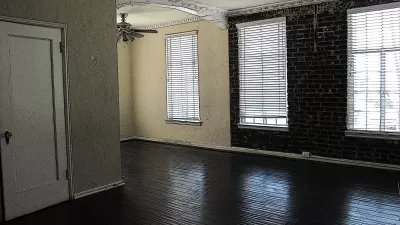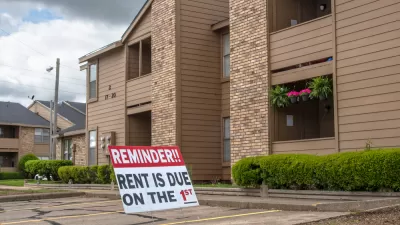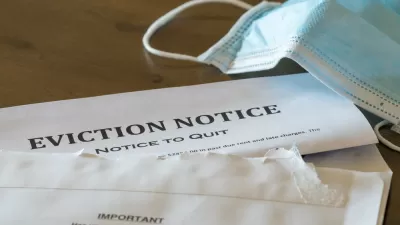The majority opinion claims the CDC overstepped its authority and calls for congressional approval of any further eviction moratoriums.

In a decision split between the Court's conservative and liberal justices, the Supreme Court "rejected the Biden administration’s latest moratorium on evictions, ending a political and legal dispute during a public health crisis in which the administration’s shifting positions had subjected it to criticism from adversaries and allies alike."
As reported by Adam Liptak and Glenn Thrush, "[t]he decision puts hundreds of thousands of tenants at risk of losing shelter, while the administration struggles to speed the flow of billions of dollars in federal funding to people who are behind in rent because of the coronavirus pandemic and its associated economic hardship."
The Court's decision stated that the Centers for Disease Control and Prevention (CDC) "had exceeded its authority" by using a "a decades-old statute that authorizes it to implement measures like fumigation and pest extermination" to impose a sweeping eviction moratorium. According to the majority opinion, "[i]f a federally imposed eviction moratorium is to continue, Congress must specifically authorize it."
A statement from the White House criticized the decision, saying "[a]s a result of this ruling, families will face the painful impact of evictions, and communities across the country will face greater risk of exposure to Covid-19." States such as New York and California have extended their own eviction moratoriums as they struggle to distribute the millions in rental assistance funds that remain stuck in bureaucratic limbo.
FULL STORY: Supreme Court Ends Biden’s Eviction Moratorium

Alabama: Trump Terminates Settlements for Black Communities Harmed By Raw Sewage
Trump deemed the landmark civil rights agreement “illegal DEI and environmental justice policy.”

Planetizen Federal Action Tracker
A weekly monitor of how Trump’s orders and actions are impacting planners and planning in America.

How Atlanta Built 7,000 Housing Units in 3 Years
The city’s comprehensive, neighborhood-focused housing strategy focuses on identifying properties and land that can be repurposed for housing and encouraging development in underserved neighborhoods.

In Both Crashes and Crime, Public Transportation is Far Safer than Driving
Contrary to popular assumptions, public transportation has far lower crash and crime rates than automobile travel. For safer communities, improve and encourage transit travel.

Report: Zoning Reforms Should Complement Nashville’s Ambitious Transit Plan
Without reform, restrictive zoning codes will limit the impact of the city’s planned transit expansion and could exclude some of the residents who depend on transit the most.

Judge Orders Release of Frozen IRA, IIJA Funding
The decision is a victory for environmental groups who charged that freezing funds for critical infrastructure and disaster response programs caused “real and irreparable harm” to communities.
Urban Design for Planners 1: Software Tools
This six-course series explores essential urban design concepts using open source software and equips planners with the tools they need to participate fully in the urban design process.
Planning for Universal Design
Learn the tools for implementing Universal Design in planning regulations.
Jessamine County Fiscal Court
Caltrans
Institute for Housing and Urban Development Studies (IHS)
City of Grandview
Harvard GSD Executive Education
Toledo-Lucas County Plan Commissions
Salt Lake City
NYU Wagner Graduate School of Public Service





























